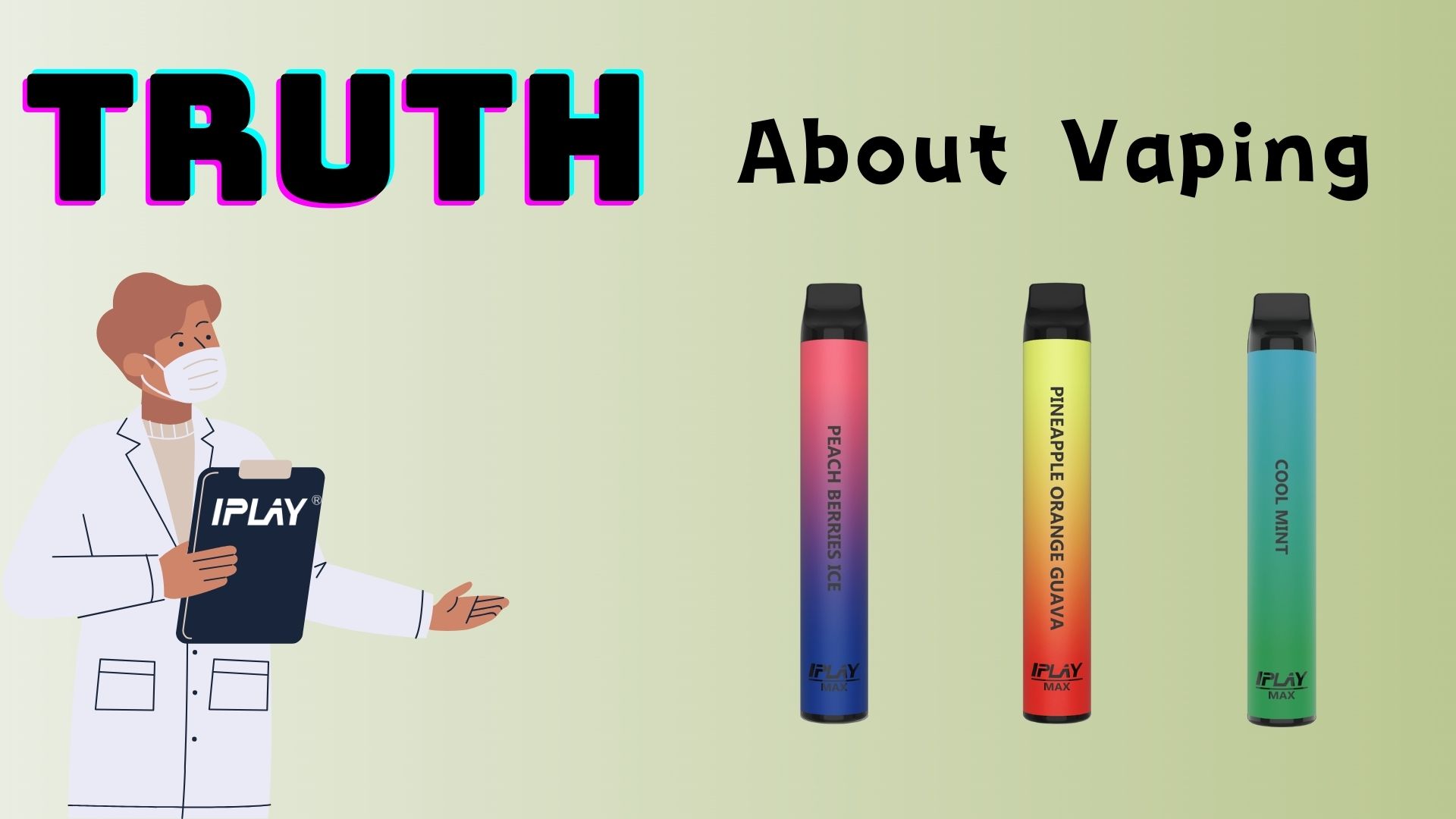Vaping is widely recognized as a safer alternative to smoking. As more people recognize the dangers of smoking, vaping is becoming more popular among smokers, who hope it will help them gradually wean themselves off traditional tobacco. There are a lot of debates about vaping right now, and new vapers may be confused about what is right and what is wrong. To clear up any confusion, let’s look at the top four vaping truths below.

Q: What is vaping? Is it legal?
A: According to Oxford Language, vape or vaping is a word that describes the action of inhaling and exhaling vapor containing nicotine and flavoring produced by a device designed for this purpose. In short, it refers to the process of using an e-cigarette. The term is spreading around the world as more and more smokers convert to vaping. Vaping is regarded as one of the most effective methods of assisting people to quit smoking quickly.
Vaping is now legal in most countries, but there are many regulations, such as age restrictions, flavor options, additional taxes, and so on. Normally, the legal smoking age is 18 or 21, but there are some exceptions, such as Japan, Jordan, South Korea, and Turkey.
Q: Is vaping safe? Does it cause cancer?
A: Vaping is less dangerous than smoking, but it is not completely risk-free. In general, traditional tobacco contains numerous toxic chemicals that are harmful to one’s health. In comparison, the electronic cigarette is much better to use because the aerosol it emits is less deleterious. Scientists have discovered no evidence to support the correlation between vaping and cancer.
Vaping is not advised for teenagers and pregnant women. Some chemicals may be harmful to the growth of adolescents and pregnant women’s hormone levels.
Q: Is vaping addictive? Can it help me quit smoking?
A: Nicotine is the substance that keeps you indulging in smoking and vaping, not the behavior itself. If there is no such thing in tobacco and e-liquid, users will hardly find any fun from smoking/vaping. Today’s technology can only purify, not completely erase, the chemicals in tobacco to some extent (Like using Filter Cigarette Holder). As for nicotine, there is no way to get it out as the substance is planted and grows along with tobacco.
Nicotine can be exempted from the vaping device, as long as manufacturers not adding it while making e-juice. Like IPLAY MAX, the disposable vape pod offers 30 flavors choices, and all these e-juice can be made nicotine-free.
Quitting smoking takes time and patience, and vaping cannot guarantee success – it takes determination to complete any difficult task. Technically, vaping can be a gentler way to help you quit smoking in a slower but less painful manner. Forbidding someone from doing something they do frequently is inhumane and brutal. A sudden end to something will invariably spur one’s rebellion to do it again, as demonstrated by some scientific surveys. That’s a dead end we can’t get into, which is why we need vaping and possibly some other nicotine replacement therapy.
Q: Will vaping devices explode? What can I do to make it 100% safe?
A: Yes, it’s potentially an explosive – the same danger exists for anything with a battery. Normally, a large-capacity battery will not be used in a vaping device, especially a disposable vape pod. The chances of a vaping device exploding are impossibly low, so vapers should never be concerned.
There is still something you can do further to protect yourself:
1. Keep the device at a normal temperature and away from direct sunlight.
2. Do not charge a rechargeable device for more than 30 minutes.
3. Keep it safe in your pocket when you’re not using it, and avoid any accidents.
Post time: Dec-17-2022

